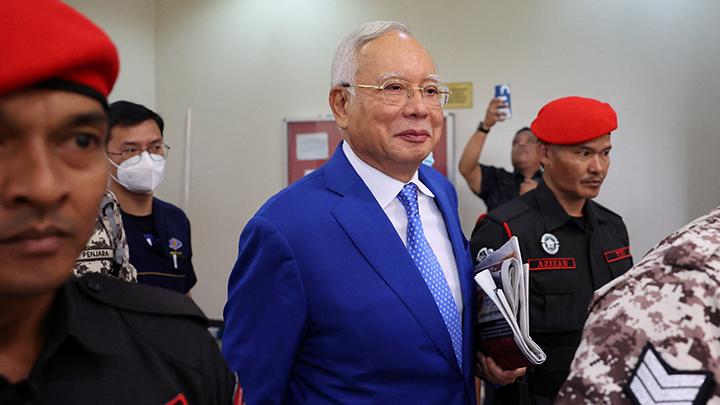
Malaysia denies that new home arrest regulations are intended to imprison former Prime Minister Najib
A minister stated on Friday that Malaysia’s plan to enact legislation for house arrest for specific offenses is not intended to free former premier Najib Razak from prison but rather to lower recidivism rates and prison overcrowding.
Fahmi Fadzil, the government spokesperson and minister of communications, was answering questions from the media regarding rumors that the law might permit Najib, who was imprisoned for corruption connected to the multibillion-dollar 1MDB scandal, to be placed under house arrest and assist other politicians who have been accused of graft in avoiding jail time.
According to Fahmi, “this has nothing to do with any individual,” “We need to adapt to the times as we see many other countries embracing restorative justice, and we too are headed that way.”
Included in the government’s 2025 budget projections, the proposed bill, according to Fahmi, is consistent with other recent criminal justice changes, including the repeal of mandatory death sentences and a moratorium on executions.
According to a government initiative launched last year, allowing prisoners accused of minor offenses to serve their term at home significantly decreased reoffending rates, he added.
According to him, Malaysian jails, which can house 74,000 inmates nationwide, are overcrowded with 87,000 inmates.
Although he insisted he was unaware of any illicit payments from the public fund he helped establish, former Premier Najib this week expressed regret for his part in the 1MDB scandal’s poor handling during his term.
According to state news agency Bernama, Prime Minister Anwar Ibrahim expressed his approval of Najib’s apologies on Friday.
In 2022, Najib—who is also the son of a former prime minister—was convicted of corruption and money laundering after he unlawfully accepted almost $10 million from SRC International, a former 1MDB subsidiary. He has continuously denied any misconduct.
A pardons board presided over by the king of Malaysia reduced his 12-year prison sentence by half.
In an effort to force the government to verify the validity of a royal directive that he claims came with the pardon and suggested house arrest for him, Najib has been advocating to serve the balance of his term at home.
All Categories
Recent Posts
Tags
+13162306000
zoneyetu@yahoo.com



